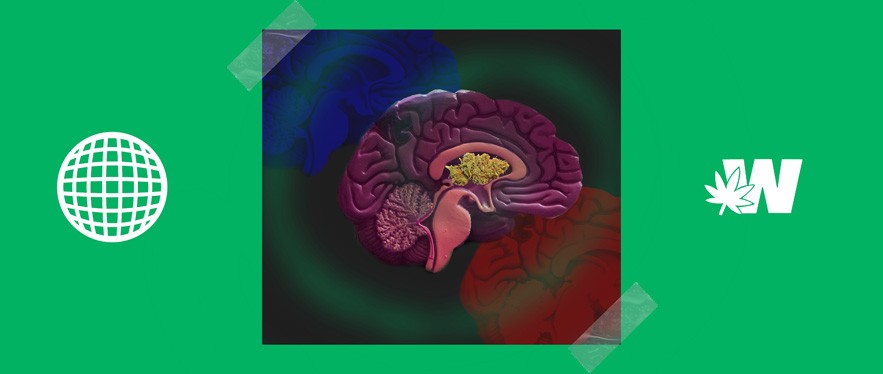
Medical Marijuana for Treatment of Dementia
In this article, we will delve into the potential benefits and challenges of using medical marijuana as a treatment for dementia. Dementia, a progressively debilitating cognitive decline disorder, affects millions of individuals globally. Conventional treatments, while helpful to some extent, often come with limitations. As a result, medical marijuana has emerged as a potential alternative, but its effectiveness and safety for managing dementia symptoms require further investigation.
This post is intended as information and for general knowledge only. It is not a substitute for medical advice, diagnosis, or treatment. It is recommended that you talk to a healthcare professional about this before introducing cannabinoids into your daily routine (especially if you have been diagnosed with any medical conditions or are under any medication). It is not recommended to drive or operate any machinery when using cannabis- or hemp-derived products. Use responsibly!
Understanding Dementia and its Challenges
Dementia is characterized by a gradual decline in cognitive abilities, encompassing memory loss, impaired reasoning, and behavioral changes. The impact of dementia is profound, affecting not only individuals but also their families and the healthcare systems that support them. Different types of dementia, such as Alzheimer’s disease, vascular dementia, and Lewy body dementia, each present with distinct characteristics and progression patterns. Common symptoms include memory impairment, disorientation, and communication difficulties, all of which profoundly disrupt daily life. Despite the existing treatments like cognitive therapies and cholinesterase inhibitors, the complexities of dementia necessitate exploring novel approaches.
The Endocannabinoid System and Medical Marijuana
The endocannabinoid system (ECS) plays a pivotal role in maintaining bodily homeostasis, with its receptors (CB1 and CB2) and endocannabinoids orchestrating various physiological processes. The cannabinoids present in medical marijuana interact with these receptors, potentially influencing neurological functions. Medical marijuana contains both THC and CBD, each with distinct properties. While THC has psychoactive effects, CBD is non-psychoactive and offers potential therapeutic applications. These cannabinoids, known for their anti-inflammatory and antioxidant attributes, hold promise in supporting neuroprotection, which could have implications for neurodegenerative diseases like dementia.
Potential Benefits of Medical Marijuana for Dementia

Dementia patients often experience behavioral symptoms such as anxiety, agitation, and aggression. Studies suggest that certain cannabinoids could alleviate these symptoms, providing much-needed relief. Chronic pain and inflammation, common companions of dementia, might be addressed by the pain-relieving and anti-inflammatory properties of cannabinoids. Additionally, disrupted sleep patterns in dementia patients could potentially be improved through the use of medical marijuana. Furthermore, cannabinoids’ potential to preserve cognitive function and slow cognitive decline holds promise in enhancing the quality of life for those affected by dementia.
Considerations and Risks
While medical marijuana shows promise, it’s essential to acknowledge potential side effects. These can include dizziness, dry mouth, and cognitive impairment, although severe adverse events are rare. Due to possible interactions with other medications, medical supervision is paramount when considering medical marijuana for dementia patients. Furthermore, responses to medical marijuana can vary significantly among individuals due to factors like dosage, strain selection, and overall health. Legal and regulatory aspects also play a crucial role, as the status of medical marijuana varies globally.
Ongoing Research and Clinical Trials
The current research landscape is replete with studies examining the effects of cannabinoids on dementia symptoms and progression. Clinical trials evaluating medical marijuana’s safety and efficacy in managing dementia-related symptoms are underway. Preliminary findings suggest positive outcomes in some cases, igniting hope for future treatment options. However, to establish conclusive evidence, larger-scale and long-term studies are necessary to comprehensively understand medical marijuana’s role in dementia treatment.
Patient and Caregiver Perspectives
Incorporating patient and caregiver perspectives is integral to comprehending the true impact of medical marijuana on dementia treatment. Anecdotes and experiences from individuals using medical marijuana to manage their dementia symptoms offer valuable insights into its effects. Caregivers’ observations also shed light on how medical marijuana might positively or negatively influence patients’ daily lives. The ethical dimension of administering medical marijuana to dementia patients with potentially impaired decision-making capacity further adds to the complexity of this issue.
Recommendations and Future Outlook
Incorporating healthcare professionals into the decision-making process is crucial. Medical experts can provide valuable guidance on treatment options, ensuring a balanced consideration of risks and benefits. As medical marijuana’s potential benefits become clearer, patients and caregivers must make informed choices. Continued research, collaboration, and regulation are imperative in establishing evidence-based guidelines for medical marijuana use in dementia treatment. As medical marijuana continues to evolve, its integration into mainstream healthcare could mark a significant advancement in dementia care.
Conclusion
As the world focuses on finding effective ways to manage dementia, medical marijuana emerges as a topic of considerable interest. While promising evidence suggests its potential benefits in alleviating certain symptoms, a nuanced and cautious approach is vital. Comprehensive research and collaborative efforts are necessary to determine the true impact of medical marijuana on dementia treatment. By working together, healthcare professionals, researchers, and patients can navigate the complexities of medical marijuana’s role in enhancing the lives of those living with dementia.

Also Interesting:
Can Weed Help PTSD: Exploring the Potential Benefits and Risks
















